Hero Read online
Dedication
To my two Katherines.
Epigraph
I lose sleep at night wondering whether we are intelligent enough to figure out the universe.
I don’t know.
—Neil deGrasse Tyson
“The justifications of men who kill should always be heard with skepticism,” said the monster.
—Patrick Ness, A Monster Calls
Contents
Cover
Title Page
Dedication
Epigraph
ASO-7
Chapter 1: Sex, Pastries, and the Laws of Physics
Chapter 2: Manhattan Mayhem
From the Purple Moleskine
Chapter 3: Boldly Going Where No 3-D Person Has Gone Before
Chapter 4: Psychopath Roll Call
Chapter 5: How Do You Get to Carnegie Hall?
Chapter 6: Inside the Kaleidoscope
Chapter 7: Malmedy in the Pine Barrens
Chapter 8: Uncle Sam Wants You
From the Purple Moleskine
Chapter 9: Down and Dirty
Chapter 10: New York, New York
Chapter 11: Kill Us
Chapter 12: Rare Moments of Peace
Chapter 13: Parenting Fails
Chapter 14: Astrid Does Amazon
Chapter 15: Over There
Chapter 16: Superhero Chores, Part 1
Chapter 17: Superhero Chores, Part 2
Chapter 18: Bug Fighters
Chapter 19: Losing Battles
Chapter 20: The Brownstone Declaration
From the Purple Moleskine
Chapter 21: The Desk Clerk
Chapter 22: Normal Is No Longer with Us
Chapter 23: Problems at Home
Chapter 24: Coup
Chapter 25: Of Course It’s a Trap
Chapter 26: Hello There, Drake
Chapter 27: Lesbokitty Represents
Chapter 28: No Battle Plan . . .
Chapter 29: . . . Ever Survives Contact With . . .
Chapter 30: . . . The Enemy
Chapter 31: Run Away! Run Away!
Chapter 32: Domes
Chapter 33: Plans and Plots and Stolen Kisses
From the Purple Moleskine
Chapter 34: Speed, Nothing but Speed
Chapter 35: Stop That Train! I Want to Get On!
Chapter 36: Too Late for Flying Lessons
Chapter 37: Justifiable Homicide(s)
Chapter 38: Momentum
Chapter 39: Gas Will Expand to Fill Available Space
Chapter 40: A Lair of Their Own
Chapter 41: Meet Your Maker
Chapter 42: To Be or Not to Be
From the Purple Moleskine
Author’s Note
Acknowledgments
About the Author
Books by Michael Grant
Back Ad
Copyright
About the Publisher
ASO-7
ANOMALOUS SPACE OBJECT Seven was being carefully tracked by Professor Martin Darby of Northwestern University, father of the famous and/or infamous Shade Darby. Shade’s father had had his security clearance reinstated, despite the fact that his daughter had used his data to locate and steal one of the earlier ASOs and had then used the rock—its universal shorthand name—to become Rockborn, a mutant with a power—the power, in Shade’s case, to move at speeds just over Mach 1.
ASO-7 had passed the orbit of the moon and was now spinning around the Earth in a decaying elliptical, an orbit that Professor Darby and counterparts at universities all over the world had calculated and recalculated with growing alarm.
ASO-7 was a large piece, roughly eighteen meters (fifty-nine feet) long and sixteen meters (fifty-two feet) wide. Estimated mass, assuming the composition matched earlier ASOs, was 1,600 tons, about the weight of 550 Toyota Land Cruisers.
The size of the rock and the fact that it seemed to be moving erratically had left Professor Darby able to calculate only probabilities. He’d turned those probabilities into a simplified map, which he’d forwarded, along with his calculations, to Homeland Security, NASA, and the Department of Defense.
The map showed the likely strike zone as a pink cross-hatched area. That pink cross-hatching extended from just north of Elizabeth, New Jersey, to the Long Island Sound around Bayville.
But it was what occupied the middle of that strike zone that had sent alarm bells ringing throughout the US government. Because in the middle of that zone stood New York City.
The odds of a relatively safe splashdown in the water of Long Island Sound were 40 percent, which left smaller likelihoods of strikes near Elizabeth, or in Manhattan proper, which had only a 20 percent likelihood of being the bull’s-eye.
But that was a one-in-five chance of utterly annihilating the greatest of American cities, because this much was certain: if ASO-7 hit land, it would release energy equivalent to thirty-five kilotons. The bomb that destroyed Hiroshima was fifteen kilotons. If ASO-7 was intact and hit, say, Rockefeller Center, it would obliterate sixty square blocks, and severely damage buildings and toss cars and buses around from Thirty-Ninth Street to Fifty-Seventh Street, and from Ninth Avenue almost to Lexington Avenue. If it landed on a weekday, the estimates were that it would kill as many as a million people instantly and another quarter million from fires and related injuries.
ASO-7 had the potential to be the greatest disaster ever to strike the United States.
Department of Homeland Security
Memo: 19-00475
Top Secret (HSTF-66)
Re: ASO-7
DoD, NASA, and university assessments suggest a likelihood that ASO-7 will impact in or near New York City. Likelihood 20 percent lowest estimate (Northwestern University), 40 percent highest estimate (Oxford University).
Potential Countermeasures:
THAAD (Terminal High Altitude Area Defense). THAAD uses KKV technology (Kinetic Kill Vehicle) and would be ineffective.
GMD (Ground-Based Midcourse Defense). No units are within range.
Aegis-capable ships. Aegis RIM-161 Standard Missile 3 (SM-3) uses KKV technology and would be ineffective.
DoD assesses likelihood of any of these systems being effective at 0 percent.
The only option we have to present at this time is to launch one or more ICBMs armed with nuclear warheads to intercept and either divert or break up the ASO. Such an application is theoretical and untested.
Preliminary estimates of effective destruction of ASO-7 by a single warhead are 5 percent. Preliminary estimates show a 30 percent likelihood of altering the ASO’s course, with that new course being almost entirely unpredictable. The most likely result appears to be fracturing of ASO-7, resulting in multiple smaller meteorites with impact zones and damage impossible to predict.
* * *
Embassy of the People’s Republic of China—Washington
ALERT
Top Secret
Ambassador Gao has been informed by US State Department that two ICBMs (Type: LGM-30) enhanced by additional solid-fuel boosters and carrying single warheads (Type: W87) with yields estimated at 475 kilotons will be launched from Vandenberg Air Force Base on an intercept course with ASO-7.
US Defense Department liaisons have offered reassurance as to angle and flight time. Recommend People’s Army track but otherwise treat as nonhostile.
* * *
The Rachel Maddow Show—Interview Transcript
RACHEL MADDOW: I want to thank you for joining us by Skype from Las Vegas. It has been a very intense few weeks, and an especially intense forty-eight hours for all of you. So thank you for agreeing to this interview.
SHADE DARBY: You’re welcome.
MADDOW: Would you mind . . . using Skype can be awkward . . . would you mind if we go
around to each member of the group?
SHADE: No problem. Dekka?
DEKKA TALENT: I’m Dekka Talent.
MADDOW: You are a survivor of the Perdido Beach Anomaly—what you, I assume, call the FAYZ?
DEKKA: Yep.
MADDOW: How is this situation different from life in the PBA dome, in the FAYZ?
DEKKA: No dome. And the rock mutation is more physical. We change. Physically. Also we have food now, so that’s different.
MADDOW: Is that transformation, that morphing, is that painful?
DEKKA: No. More creepy and disturbing than painful.
MADDOW: Can you give us a sense of how that feels? It must be just . . . well, let me just ask: What is it like? How does it feel?
DEKKA: (Shrugs.) You should probably ask Cruz or Shade or . . . (Pushes Cruz forward.)
CRUZ: Hi.
MADDOW: Cruz, you have become the face of the Rockborn Gang. In fact, we’re going to put up the iconic photo of you carrying a baby away from the flames that engulfed hundreds of people in that just unspeakably awful moment in Las Vegas. I wonder if you see your new status as, well, like I said, the face of the Rockborn Gang, I wonder if you see this perhaps as an ironic twist, given that you are transgender and your ability, your superpower, is to alter your appearance at will.
CRUZ: I guess. I mean, yeah, it’s like, I don’t know. Like the rock has a weird sense of humor. Or else the media does. But I’m not the hero here. It wasn’t me that stopped Dillon Poe—
MADDOW: The so-called Charmer. Dillon Poe, who had the power to compel absolute obedience with just the sound of his voice.
CRUZ: Yeah, him. It wasn’t me that stopped him. It was Malik and Francis. I just happened to be in that picture.
MADDOW: The story is that you were recruited, in a way, by Shade Darby, who was your friend from school. Is that correct?
CRUZ: More or less. You should talk to Shade. Shade and Dekka are sort of the . . . I don’t know. I mean, I’m just this chameleon person. Or talk to Malik, he’s the one who . . .
MADDOW: Did you want to say something more about Malik?
CRUZ: Malik, come here, your turn.
MALIK TENERIFE: Good evening, Ms. Maddow.
MADDOW: Welcome to the show, and thanks for coming on. Your story is perhaps the most tragic. You were very badly burned in the battle that took place at the Port of Los Angeles.
MALIK: Yes.
MADDOW: Doctors did not expect you to survive. Is it true, as some reports have it, that the Malik you are now, the person we are seeing, is actually a morph?
MALIK: Yes, that’s true. I am in morph now. If I de-morph, I revert back to the condition I was in the hospital. Which, as you said, is . . . intolerable.
MADDOW: And the power you have is the ability to essentially project that pain onto others. That’s how you prepared the ground for the raid on the so-called Ranch, the Homeland Security facility people are comparing to Dr. Mengele’s Auschwitz.
MALIK: Yes. That is my power. The ability to project excruciating pain. It’s not . . . It’s not something I wanted.
MADDOW: Survivors from the Ranch, survivors—and there were very few—say the pain you projected was so awful that in some cases they attempted suicide rather than endure it.
MALIK: (Nods.)
MADDOW: And Dillon Poe did in fact kill himself rather than endure it.
MALIK: Yes.
MADDOW: Does it concern you at all that this power is in the hands of . . . well, in your hands and in the hands of the others in the group? And then I wonder if you would talk about how you see all of this playing out.
MALIK: Does it concern me? (Laughs.) Of course it concerns me. We have six people here who have extreme power. No one elected us. No one said, ‘Let’s give all this power to these kids.’ The problem is that the rock gives power to the good and the bad alike, people like Justin DeVeere—
MADDOW: Knightmare.
MALIK: Yeah, him. And Tom Peaks—
MADDOW: Napalm or Dragon, as people are calling him.
MALIK: And Dillon Poe, yeah. The only thing the people in charge could do to stop Poe was send a tank brigade into the city, and, I’m sorry, but that wasn’t going to stop him, either. Look, I don’t want to be doing this; none of us wants to be doing this. But Dillon Poe had to die; there’s no question about that. He had to die. He was a mass murderer. He killed—
MADDOW: The official death toll is currently 3,102 people. And may rise as more bodies are found.
MALIK: Yeah, he had to be stopped, and the only way to do it was by killing him. But that doesn’t mean I wanted to be the one who . . . None of us likes doing this, Ms. Maddow. You know?
MADDOW: Shade Darby? Is that true for all of you? I ask because—and please correct me if any of this is wrong—but you actually chose this path. You actually obtained a piece of the rock and became a mutant deliberately.
SHADE: Yes. And I have to live with that. Not just what I did to myself, that’s on me, but I dragged Cruz into it, and Malik. You could say I chose this for myself, although . . . Did I know this was how it would turn out? No, of course not.
MADDOW: I don’t want to put words in your mouth, but I sense, and again, correct me, but I sense that you feel some guilt.
SHADE: Some guilt? (Laughs.) I saw my father thrown to the ground and arrested for something I did. I convinced Cruz to help me, and now she’s in the middle of all this, living this life. And Malik . . . Do I feel guilty that someone I care about is haunted night and day by voices in his head? That he’s defined by pain? People are calling him M-Pain and Screamer and, you know, Malik is the smartest, kindest . . . Yeah. Yes, Rachel, I feel guilt.
MADDOW: Is Aristotle Adamo there with you?
ARMO: Call me Armo.
MADDOW: I want to run a piece of tape we have obtained. I’ll warn the audience that it is shaky and poor quality and . . . well, I was going to say it may disturb some viewers, but given what everyone has seen in recent days and weeks . . . Let’s roll the tape. That is you, in morph, attacking an Apache helicopter, a military helicopter, as it hovers over the ground.
ARMO: Huh. Cool, I actually haven’t seen that before.
MADDOW: You were a prisoner at the Ranch where—
ARMO: Can you run that tape again? That was way cool.
MADDOW: Actually, if you could answer my question and—
ARMO: Nah, first run the tape.
MADDOW: (Pause.) All right, ummmmm, control room?
CHAPTER 1
Sex, Pastries, and the Laws of Physics
“GOTTA ADMIT: THIS is nice. I guess.” Dekka Talent sounded unhappy about it as she rubbed a bedsheet between thumb and forefinger. “It’s all so smooth and soft.”
“Beats my old sleeping bag,” Francis Specter said, yawning, ruffling her red hair, and throwing back the covers of her own bed. “Do you mind if I . . .” She gestured toward the bathroom.
“It’s your bathroom as much as mine, kid.”
They’d shared the bedroom, each with her own queen-sized bed, night-light, side table, bottle of spring water, TV remote, and pillow mints. Dekka was the elder of the two, of voting if not yet drinking age, and had about her a seriousness and physical presence that made her seem older.
Francis Specter was a new person in Dekka’s life, and in the life of the rest of their group as well, an underfed white girl of fourteen, with wary, suspicious eyes.
Both girls had pasts full of pain and trauma. Dekka had survived the FAYZ, usually called the Perdido Beach Anomaly or PBA, the bizarre twenty-mile-in-diameter, impenetrable, opaque dome that had imprisoned 332 kids under the age of fifteen. 332 kids at the start . . . far fewer by the end.
Following the collapse of the FAYZ dome, Dekka had had four years of relative normalcy, doing her best to sink back into obscurity as a cashier at a Bay Area Safeway. That obscurity had ended when it was learned that more of the rock—the same alien mutagenic virus-infected celestial debris that had caused the FAYZ�
�was heading for Earth.
A secret government group, Homeland Security Task Force 66, had brought Dekka to the Ranch and there had tried to use the rock to give her some of the powers she’d had in the FAYZ. HSTF-66’s plan had worked, partially. Dekka had gained powers, but not the powers she’d once held in the FAYZ. Things had changed. Outside the confines of the dome, rock mutations yielded more terrifying powers that were accompanied by physical changes, often quite extreme. In Dekka’s case, the rock had grabbed a bit of cat DNA and some imagery from Dekka’s own mind, played its inscrutable game, and yielded a morph with poisonous snakes where her dreads were, and a body covered in fur.
And Dekka’s old power of canceling gravity had been replaced by an ability to shred anything—or anyone—in her path. Like she was a human blender, a human chain saw. She’d learned to focus this power, but it was still horrifically destructive. In the course of too many battles, Dekka had turned walls and floors and ceilings to mulch. And human beings—bad guys, to be sure, but still human beings—had been reduced to bloody gobbets. By Dekka. By her will.
Dekka was not happy about the soft sheets because Dekka had zero reason to believe that life would continue to allow her to survive, let alone survive in luxury. She was also not happy about the four and a half bathrooms, each a wonder of marble and mirrors and glass, with deep tubs and showers that could have been used to hose off a whole rugby team, outfitted with towels so thick and soft Dekka could have slept comfortably on one of them, let alone the bed.
Luxury, in Dekka’s opinion, made you soft. And the future did not feel soft.
But the sheets sure do.
Also, she admitted privately, it was a bit intimidating. She was not a rich kid like her sidekick, Armo, who took it all in stride. Armo’s path to the Rockborn Gang had started when he wrecked his 600-horsepower, $90,000 Viper in Malibu. Dekka could not have afforded to pay a month’s insurance on such a vehicle.
As for Francis Specter, Dekka knew that she had endured a very different sort of hardship, living with her mother as her mother descended into drug addiction and a depraved life with a racist biker gang at a bare-bones compound in the Mojave Desert.

 Fear
Fear Plague
Plague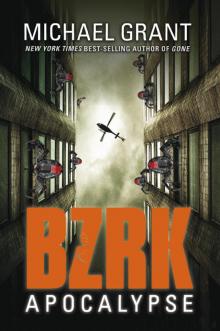 BZRK: Apocalypse
BZRK: Apocalypse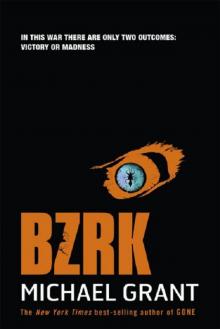 Bzrk
Bzrk Love Sucks and Then You Die
Love Sucks and Then You Die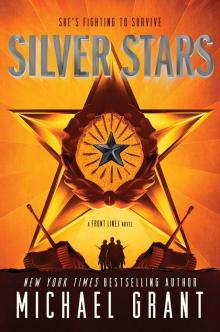 Silver Stars
Silver Stars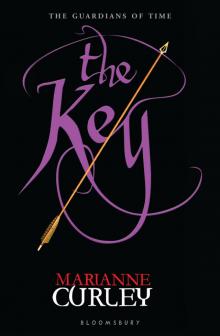 The Key
The Key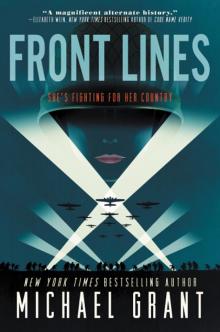 Front Lines
Front Lines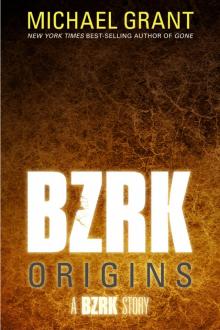 BZRK Origins
BZRK Origins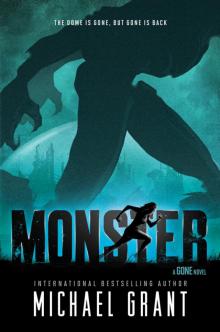 Monster
Monster Gone
Gone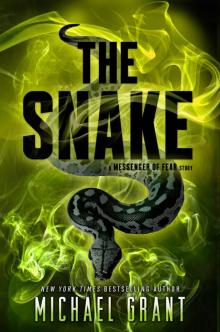 The Snake
The Snake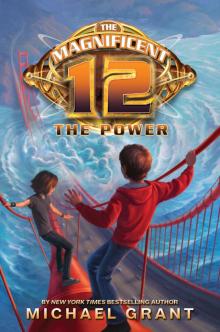 The Power
The Power Hunger
Hunger Lies
Lies A Sudden Death in Cyprus
A Sudden Death in Cyprus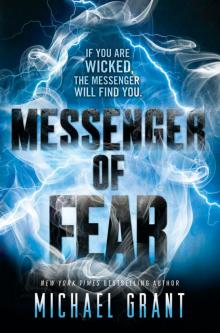 Messenger of Fear
Messenger of Fear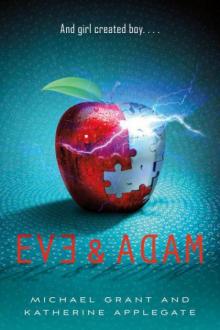 Eve & Adam
Eve & Adam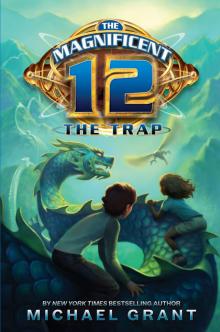 The Trap
The Trap Light
Light An Artful Assassin in Amsterdam
An Artful Assassin in Amsterdam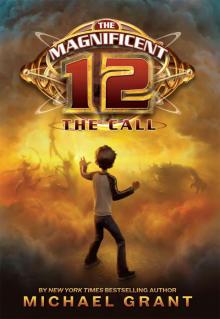 The Call
The Call Hero
Hero Soldier Girls in Action
Soldier Girls in Action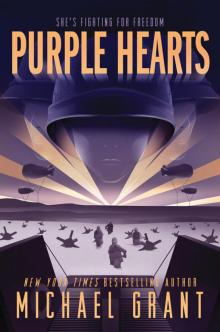 Purple Hearts
Purple Hearts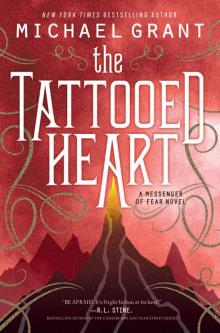 The Tattooed Heart
The Tattooed Heart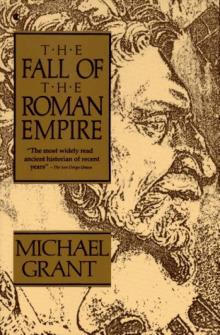 The Fall of the Roman Empire
The Fall of the Roman Empire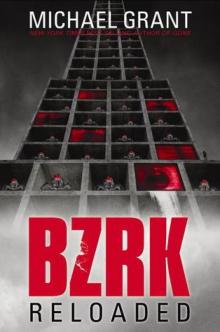 BZRK Reloaded
BZRK Reloaded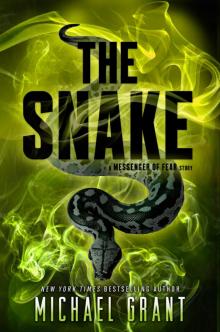 Messenger of Fear Novella #1
Messenger of Fear Novella #1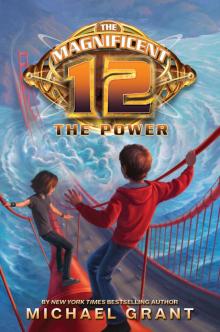 The Magnificent 12
The Magnificent 12 Fear: A Gone Novel
Fear: A Gone Novel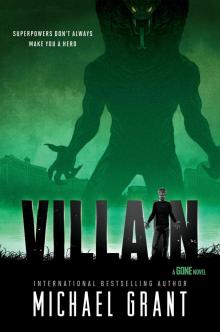 Villain
Villain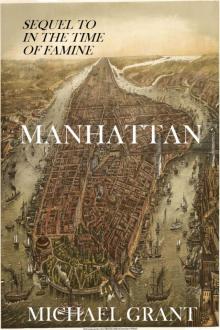 Manhattan
Manhattan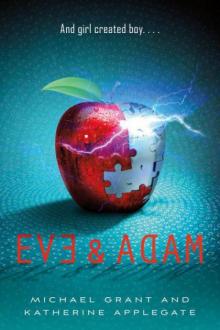 Eve and Adam
Eve and Adam Plague: A Gone Novel
Plague: A Gone Novel Fergie Rises
Fergie Rises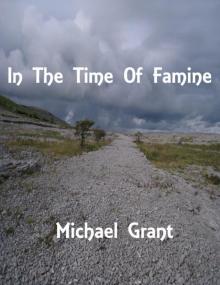 In the Time of Famine
In the Time of Famine Hunger_A Gone Novel
Hunger_A Gone Novel Lies g-3
Lies g-3